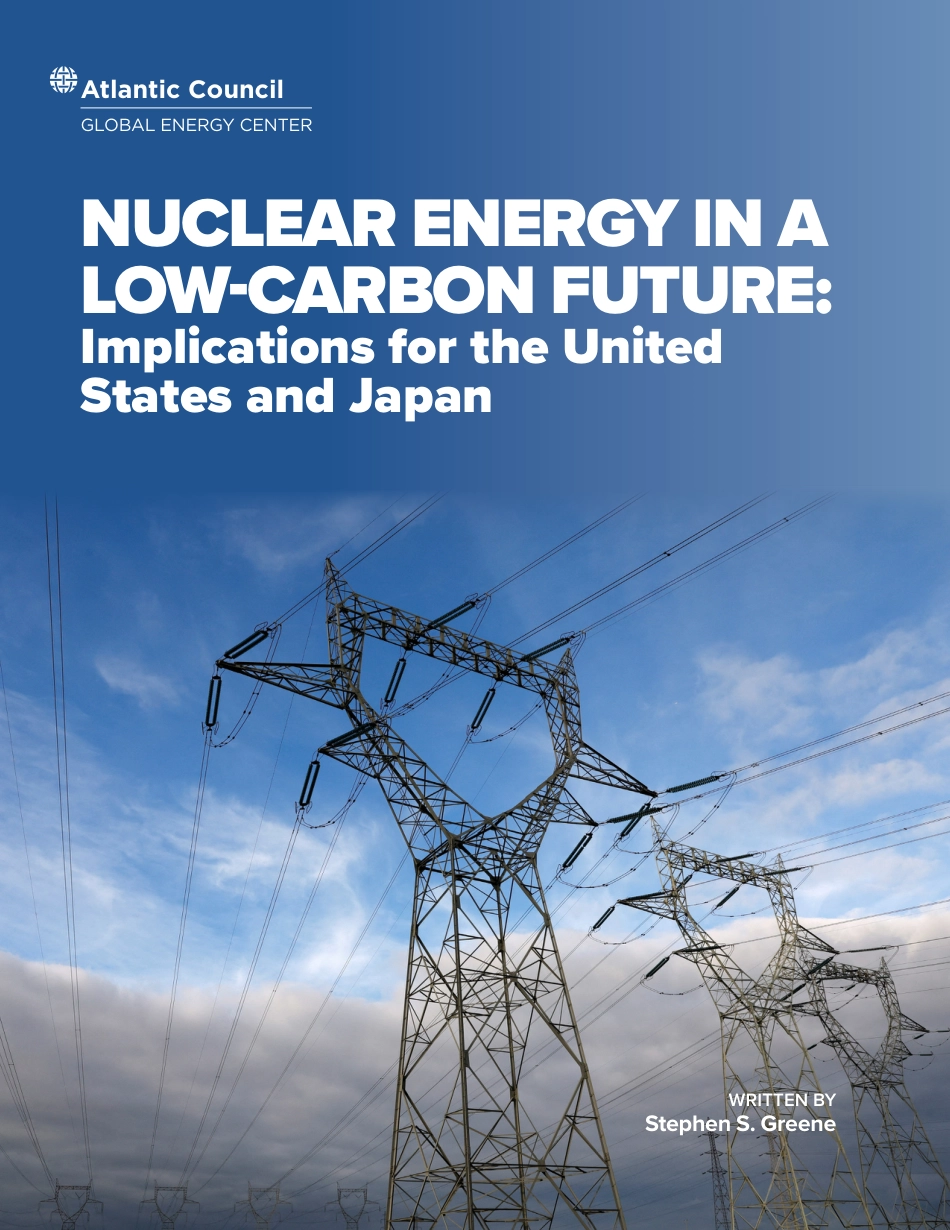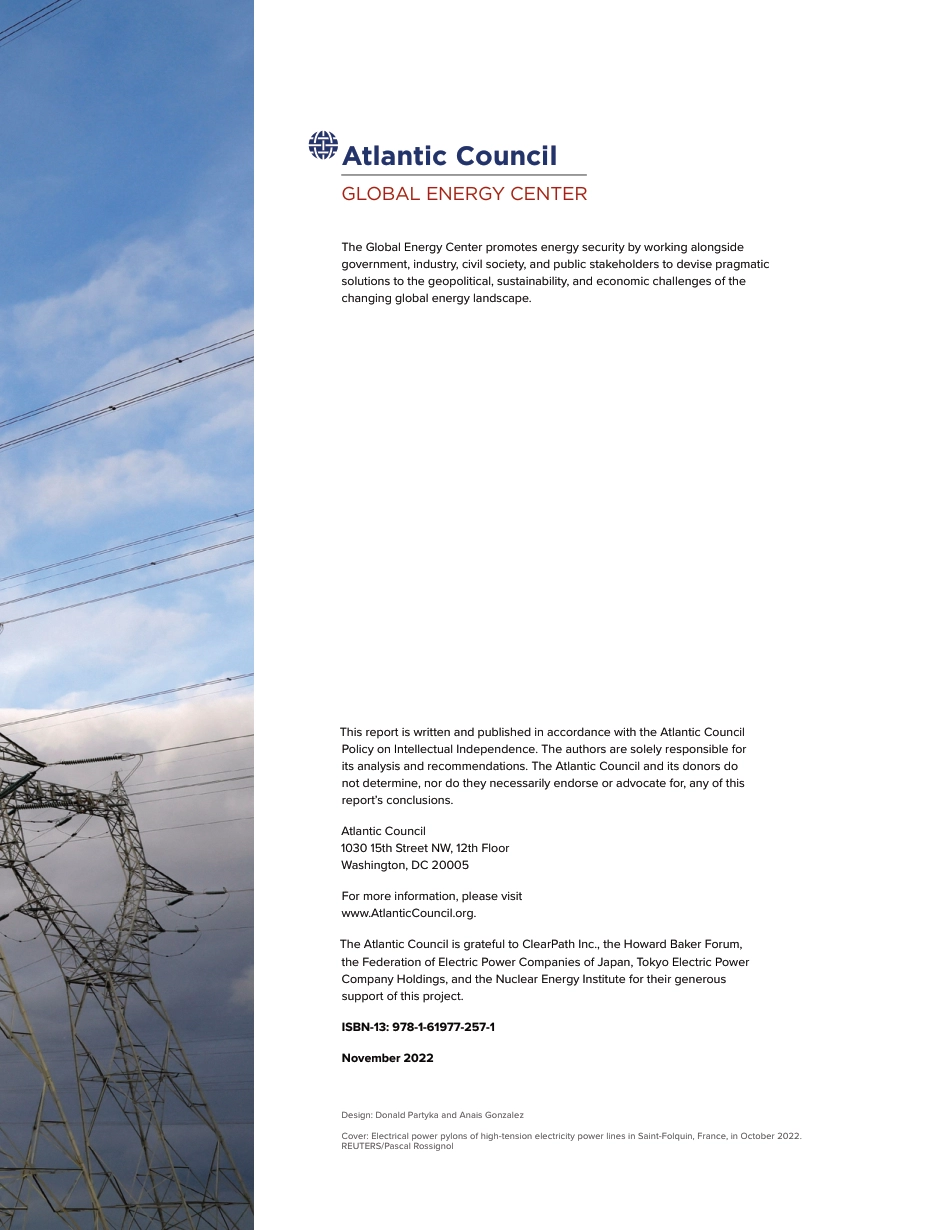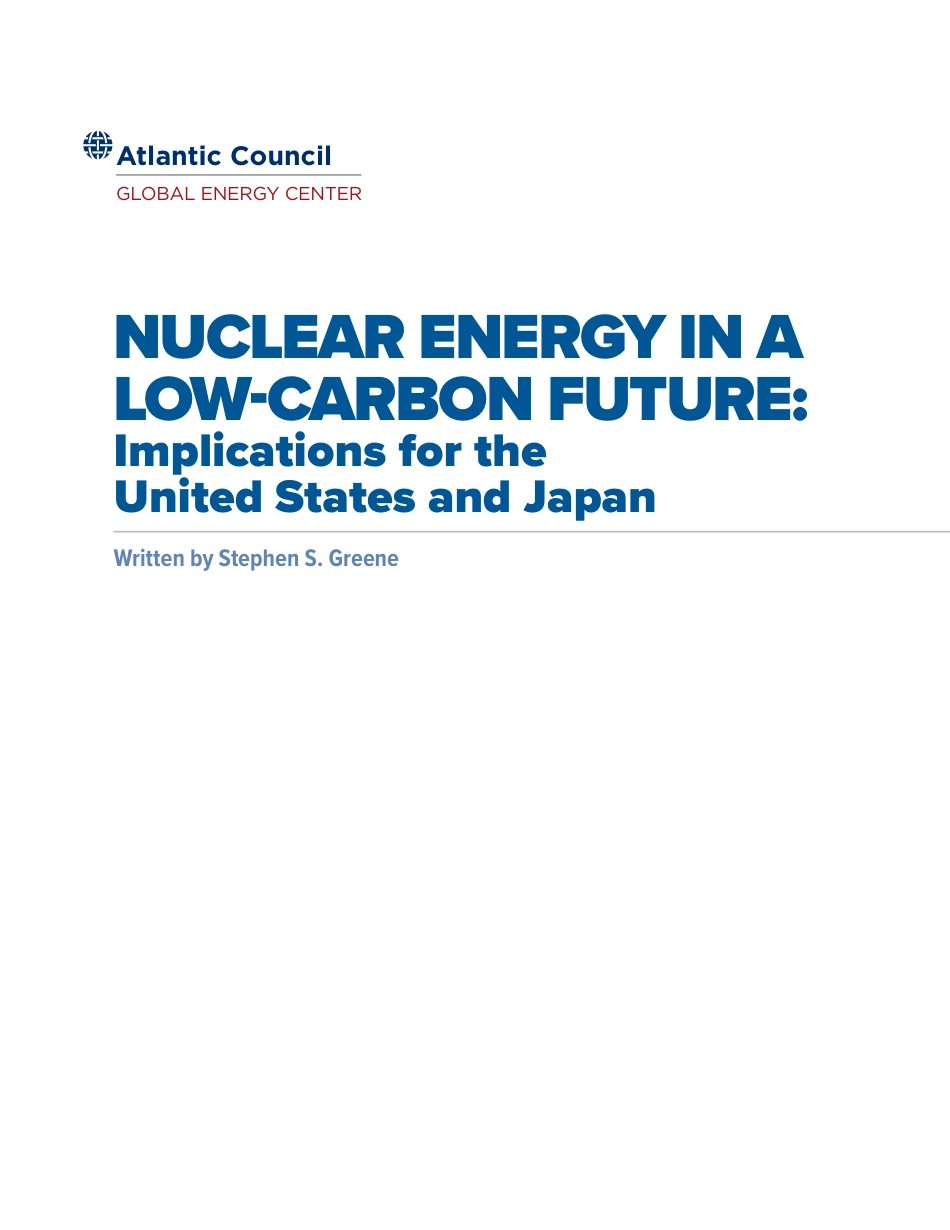NUCLEAR ENERGY IN A LOW-CARBON FUTURE: Implications for the United States and JapanAtlantic CouncilGLOBAL ENERGY CENTERWRITTEN BY Stephen S. GreeneAtlantic CouncilGLOBAL ENERGY CENTERThe Global Energy Center promotes energy security by working alongside government, industry, civil society, and public stakeholders to devise pragmatic solutions to the geopolitical, sustainability, and economic challenges of the changing global energy landscape.This report is written and published in accordance with the Atlantic Council Policy on Intellectual Independence. The authors are solely responsible for its analysis and recommendations. The Atlantic Council and its donors do not determine, nor do they necessarily endorse or advocate for, any of this report’s conclusions.Atlantic Council1030 15th Street NW, 12th FloorWashington, DC 20005For more information, please visitwww.AtlanticCouncil.org.The Atlantic Council is grateful to ClearPath Inc., the Howard Baker Forum, the Federation of Electric Power Companies of Japan, Tokyo Electric Power Company Holdings, and the Nuclear Energy Institute for their generous support of this project.ISBN-13: 978-1-61977-257-1November 2022Cover: Electrical power pylons of high-tension electricity power lines in Saint-Folquin, France, in October 2022. REUTERS/Pascal RossignolDesign: Donald Partyka and Anais GonzalezAtlantic CouncilGLOBAL ENERGY CENTERWritten by Stephen S. GreeneNUCLEAR ENERGY IN A LOW-CARBON FUTURE: Implications for the United States and JapanTable of ContentsTable of Contents 1Introduction 3I. Nuclear Energy and Decarbonization 4II. Challenges to Decarbonization 9III. Implications for the United States 14IV. Implications for Japan 18Conclusion 25About the Author 27NUCLEAR ENERGY IN A LOW-CARBON FUTURE: ...



